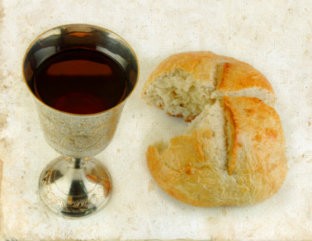Gifts of the table

My congregation, St. Barnabas Episcopal Church, opens its doors to members, to invitees and to those who are served by various outreach ministries. Our number of ministries is all the more remarkable because we are a relatively small parish, with about 150 worshipers on a typical Sunday. We open our doors to Alcoholics Anonymous, to the homeless for meals and overnight stays, to a monthly Taizé gathering, and to many other people and groups. The theme of our stewardship campaign this year is “Open Doors.”
There is another door we open, or rather that is open to us, and I believe that this open door accounts for the church’s energy and generosity. The door I refer to is the Eucharist. The theologian John Zizioulas has said that the Eucharist makes the church. (He has also said the obverse is true, that the church, as a graced body and itself a tradition-bearing vehicle, makes the Eucharist—but that would be the theme of another column.) That the Eucharist makes the church is true for our congregation. How is this so?
I view our church—and any church—as first of all a worshiping community centered on the Eucharist. The Eucharist, the Great Thanksgiving, gives us gifts that grant us our life and enables our service, our mission, as a church. The Eucharist gives us innumerable gifts, but we may think of its power especially in terms of three gifts.




